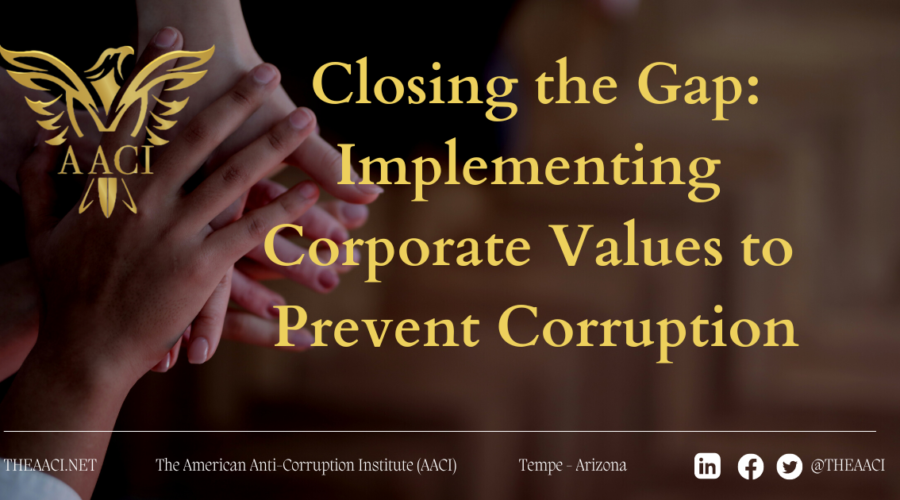Technical Staff
January 23,2023
Corporate values are the principles that guide a company’s day-to-day operations. They are intended to encourage ethical behavior, foster a positive work environment, and ensure that the company pursues its mission and goals. However, there is frequently a mismatch between corporate value theory and practical implementation, particularly when preventing corruption.
Corporate values, in theory, have the potential to be an effective mechanism for deterring, preventing, and detecting corruption. They provide a clear framework for sound decision-making and help employees understand the company’s ethical expectations. Furthermore, many businesses have implemented compliance programs and training initiatives to enhance employees’ education on ethical behavior and assist them in identifying and reporting potential ill acts, including corruption.
However, putting corporate values into action can be a bit more complicated. Several factors, such as a lack of proper oversight, effective internal controls, and accountability, can make it difficult for a company to prevent corruption effectively. Furthermore, many businesses struggle to effectively communicate their values and expectations to their employees, making it difficult for them to understand and follow them.
The lack of accountability is one of the most difficult challenges in preventing corruption through corporate values. Employees who do not believe they are held accountable for their actions are more likely to engage in unethical behavior. Therefore, businesses must establish clear lines of responsibility and hold employees responsible for their actions. Internal controls, compliance programs, and regular audits can help achieve this.
Another issue is a lack of oversight. It is difficult to detect and prevent corruption when there is a lack of direction and leadership. Internal controls and compliance programs in place and regular auditing of the company’s operations shall mitigate the lack of oversight problem. Furthermore, businesses should establish a reporting mechanism for employees to report any suspected corrupt behavior and ensure that the reporting process is confidential and free of retaliation.
Finally, businesses must communicate their corporate values and expectations to their employees, vendors, creditors, investors, and regulators. Training programs, company-wide communications, and regular reminders via the company’s website and social media of the company’s values can all help. Furthermore, businesses should ensure that their values are reflected in their hiring and promotion practices and reinforced throughout their operations.
To summarize, corporate values can effectively prevent corruption, but they must be adequately implemented. Oversight, internal controls, accountability, effective communication, and value reinforcement are required. Businesses can ensure that their corporate values are not just empty promises but a critical tool for preventing corruption by addressing these issues.
Photo by Andrea Piacquadio: https://www.pexels.com/photo/crop-group-stacking-hands-together-3830745/











































